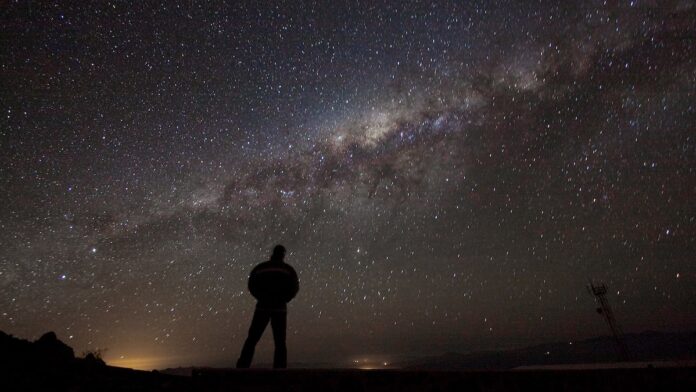Recent analysis of radio galaxy distribution suggests that our Solar System is moving through the Universe at a speed significantly higher than previously calculated—more than three times faster than current cosmological models predict. This discovery challenges long-held assumptions about our place in the cosmos and may indicate flaws in our understanding of the Universe’s large-scale structure.
How Fast Are We Really Moving?
Currently, our Solar System is estimated to orbit the galactic center at approximately 792,000 kilometers per hour, completing a full galactic year in 225 million Earth years. The Milky Way itself is thought to be traveling at around 2.1 million kilometers per hour. However, the new research, led by astrophysicist Lukas Böhme of Bielefeld University, suggests these figures may be drastically underestimated.
The Role of Radio Galaxies
The findings stem from an analysis of radio galaxies—distant celestial bodies that emit powerful radio waves. Unlike visible light, radio waves penetrate dust and gas, offering astronomers a clear view of far-off galaxies. By studying the distribution of these galaxies, scientists can detect a subtle “source count dipole,” a bias caused by our motion through space: more galaxies appear in our direction of travel than behind us.
This effect is weak, requiring precise measurements from highly sensitive radio telescopes. Böhme and his team utilized data from three radio telescopes, including the Low-Frequency Array (LOFAR) in Europe, to create the deepest wide-area radio survey to date.
A Significant Discrepancy
Combining data and employing a novel statistical approach to account for the complexity of radio galaxies, the researchers detected a dipole 3.7 times stronger than expected under the standard cosmological model. This discrepancy exceeds a statistical significance of five sigma, meaning the result is highly reliable.
“Our analysis shows that the Solar System is moving more than three times faster than current models predict,” says Böhme. “This result clearly contradicts expectations based on standard cosmology and forces us to reconsider our previous assumptions.”
Challenging the Cosmological Principle
The standard cosmological model relies on the “cosmological principle,” which assumes matter is uniformly distributed across the Universe. This means our location shouldn’t be special; any other point in space would appear similar. However, if our Solar System is moving this rapidly, it suggests either that the Universe is structured differently than we thought, or that our current models are fundamentally incomplete.
The implications are profound. If the findings hold, scientists may need to re-evaluate the large-scale structure of the Universe and question the uniformity assumption. Alternatively, the distribution of radio galaxies might be less uniform than previously believed.
What’s Next?
The research is still under debate, but the results are compelling enough to force a reassessment of our understanding of the cosmos. The findings don’t just change numbers; they challenge the core assumptions upon which our cosmological models are built. Further investigation is needed to confirm the findings and explore the implications for our place in the Universe.
This discovery serves as a reminder that despite decades of research, the Universe remains full of surprises.






























